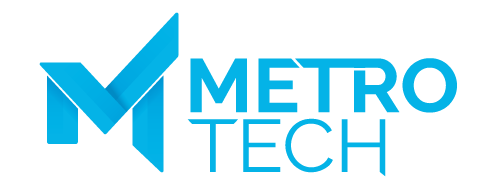Introduction:
The Solution Architect is responsible for the successful design, implementation, deployment and adoption of an overall solution. The Solution Architect ensures that the solution meets the customer’s needs now and in the future. In this course, students will learn about decisions a Solution Architect makes during an implementation, covering security, integrations, Power Apps architecture, Power Automate architecture, and more. This course is designed to give you an introduction to the Solution Architect role.
Objectives:
Course Outline:
1 – Becoming a solution architect for Dynamics 365 and Microsoft Power Platform
- Existing product and platform skills
- Expectations of a solution architect
- Solution architect role during project phases
- Pillars of a great architecture
2 – Discover customer needs as a Solution Architect for Dynamics 365 and Microsoft Power Platform
- Initial customer discovery
- Customer discovery meetings
- Customer communication strategy
3 – Propose a solution as a Solution Architect for Microsoft Power Platform and Dynamics 365
- Identify solution components
- Develop and validate a demo
- Identify potential third-party components
- Recognize strengths and weaknesses in a solution
4 – Work with requirements for Microsoft Power Platform and Dynamics 365
- Lead requirement capture sessions
- Identify functional requirements
- Identify non-functional requirements
- Confirm and finalize requirements
5 – Perform fit gap analysis
- Determine feasibility of requirements
- Refine requirements from proof of concept insights
- Categorize business requirements and perform gap fit analysis
- Evaluate Dynamics 365 and Microsoft Power Platform apps
6 – Solution Architect series: Implement project governance for Power Platform and Dynamics 365
- Project governance
- Solution architect’s role in project governance
- Techniques for keeping a project on track
- Work as a team
7 – Solution Architect series: Power Platform architecture
- Environments
- Environment data location
- Work with data
- Custom logic
- Platform limits
- High availability and disaster recovery considerations
8 – Solution Architect series: Explore Power Apps architecture
- Common app patterns
- App composition
- Components
- Optimize canvas apps
- Microsoft Teams and Power Apps
- Portal apps
9 – Explore Power Automate architecture
- Triggers
- Common actions
- Error handling
- Best practice
- Business process flows
10 – Solution architect series: Explore Microsoft Copilot Studio
- Agent building options
- Agent concepts
- Best practices
- Integrate agents
- Microsoft Copilot Studio in Teams
11 – Solution architect series: Explore robotic process automation
- Power Automate for desktop
- Record and edit tasks
- Run desktop flows
- Process advisor
12 – Solution architect series: Model data for Power Platform solutions
- Common Data Model
- Data modeling
- Choose a data store
- Data modeling for Dataverse
- Best practices for Dataverse
- Architecture of Fabrikam data model and devices
- Report data and handle primary visitors
- Handle visitors, waivers, and photos
- Example data model solution
13 – Solution architect series: Model security for Power Platform solutions
- Environment security
- Data loss prevention
- Access to Dataverse
- Security in apps
14 – Solution Architect series: Evaluate Power Platform analytics and AI
- Power Platform reporting capabilities
- Power BI overview
- Data requirements
- Power BI and Power Platform
- Dataflows
- AI
15 – Solution Architect series: Implement integrations with Power Platform
- Integration challenges
- Inbound data integration
- Outbound data integration
16 – Solution Architect series: Plan application lifecycle management for Power Platform
- Key considerations for ALM
- Solutions
- Configuration and reference data
- Release process
- ALM with Azure DevOps
17 – Solution Architect series: Testing and go-live
- Plan for go-live
- Data migration
- Plan for go-live
18 – Becoming a solution architect for Dynamics 365 and Microsoft Power Platform
- Existing product and platform skills
- Expectations of a solution architect
- Solution architect role during project phases
- Pillars of a great architecture
19 – Design a semantic model in Power BI
- Work with tables
- Create a date table
- Work with dimensions
- Define data granularity
- Work with relationships and cardinality
- Resolve modeling challenges
20 – Challenge project – Create Microsoft Power Platform solutions
- Prepare
Enroll in this course
$2,380.00 – $2,495.00

